KPL
(KPL) The Ambassador of Japan to Laos Keizo Takewaka, and UNICEF Representative Pia Rebello Britto visited Sanamxay district, Attapeu on Nov 12, to observe UNICEF-supported interventions to promote the sustainable recovery of flood-affected areas and strengthen community-based disaster resilience and preparedness.
As part of this visit, the Japanese Ambassador co-chaired a handover ceremony of education, water, sanitation and hygiene related supplies consisting of school furniture, learning kits, handwashing stationeries, drinking water filters, and gender segregated toilets to the Tha Ouan primary school in Sanamxay district alongside the UNICEF Representative and Vice Governor of Attapeu Minaphone Xayxomphou.
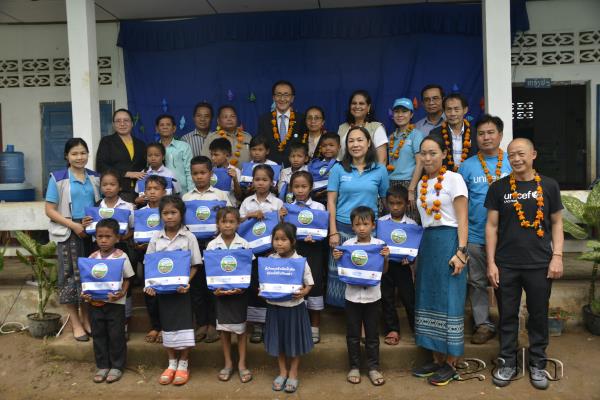
(KPL) The Ambassador of Japan to Laos Keizo Takewaka, and UNICEF Representative Pia Rebello Britto visited Sanamxay district, Attapeu on Nov 12, to observe UNICEF-supported interventions to promote the sustainable recovery of flood-affected areas and strengthen community-based disaster resilience and preparedness.
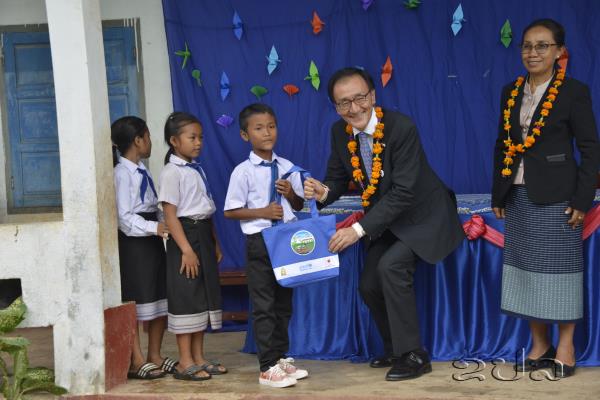
As part of this visit, the Japanese Ambassador co-chaired a handover ceremony of education, water, sanitation and hygiene related supplies consisting of school furniture, learning kits, handwashing stationeries, drinking water filters, and gender segregated toilets to the Tha Ouan primary school in Sanamxay district alongside the UNICEF Representative and Vice Governor of Attapeu Minaphone Xayxomphou.
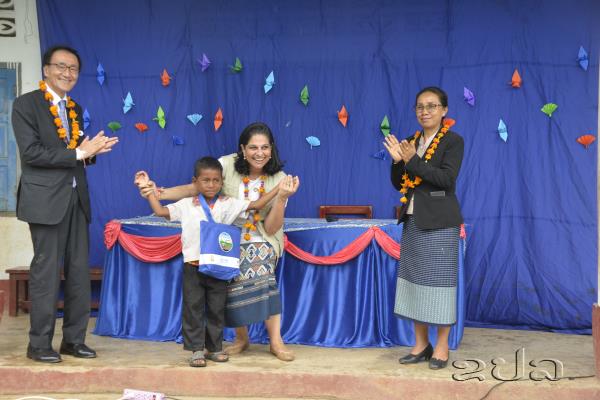
In 2018 severe floods caused significant damage to Attapeu province’s education sector. The majority of schools in affected areas reported loss of textbooks, school furniture, learning materials and stationeries, affecting almost 4,500 students. Furthermore, water and sanitation services throughout the province were also disrupted, with most of the community water supplies and facilities becoming submerged and contaminated with flood water.
To address the post-disaster needs and strengthen the disaster preparedness of affected communities, The government of Japan has provided a grant of USD $4.4 million to UNICEF to implement two projects (US$2.2 million for each project) from 2019 to 2023, focusing on tackling the floods’ impact on education and water, sanitation and hygiene (WASH) in three districts: Sanamxay (Attapeu), Khoun and Nonghet (Xieng Khuang).
“The interventions funded by Japan and implemented by UNICEF play an important role in the sustainable recovery of the education sector and in restoring equitable access to improved water and sanitation services for flood-affected communities,” said Mr. Takewaka, the Ambassador of Japan to the Lao PDR. “As the Lao PDR has a large portion of young population, we have a heavy responsibility to support schools and education,” he further added.
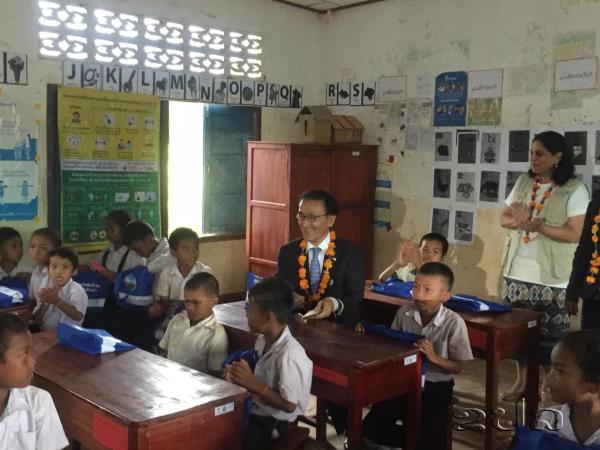
“Extended financial support from Japan, coupled with UNICEF’s in-country implementation capacity, will make a large-scale positive impact on the lives of every child in the Lao PDR and support them in overcoming the challenges imposed by the floods,” stated UNICEF Representative Pia Rebello Britto.
The supplies handed over to the Tha Ouan Primary School are part of the larger interventions in education targeting 295 pre-primary and primary schools for the three districts (26 pre-primary and 47 primary schools in Sanamxay). Approximately 18,800 pre-primary and primary-aged children per year in Attapeu and Xieng Khuang, including most vulnerable children, are expected to benefit from these interventions in education.
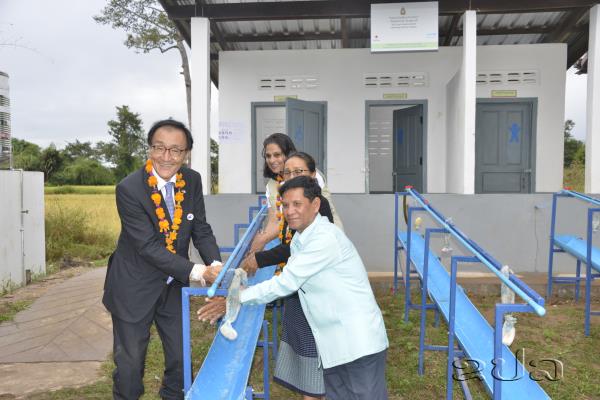
Alongside the provision of education materials to affected schools, the interventions in the education sector also include support for the development of a national education sector emergency contingency plan and trainings for enhanced teaching-learning practices and disaster risk reduction (DRR) for both teachers and education officials as well that will benefit the whole education sector, ensuring education officials know what to do when emergencies hit.
Additionally, UNICEF has also supported the Tha Ouan Primary School with a community water supply through water tanks, boreholes and water meters, along with hand washing stations, accessible and gender-segregated toilets and filtered drinking water supply for classrooms as part of the package of WASH interventions.
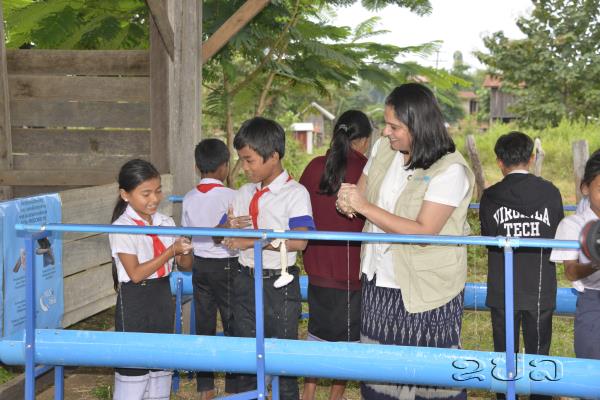
An estimated 7,500 children, including girls of 40 primary schools and 20,000 people (including 5,000 females) from 40 rural communities in Attapeu and Xieng Khuang are expected to benefit from improved sources of water, safe sanitation and proper hygiene related behaviors.
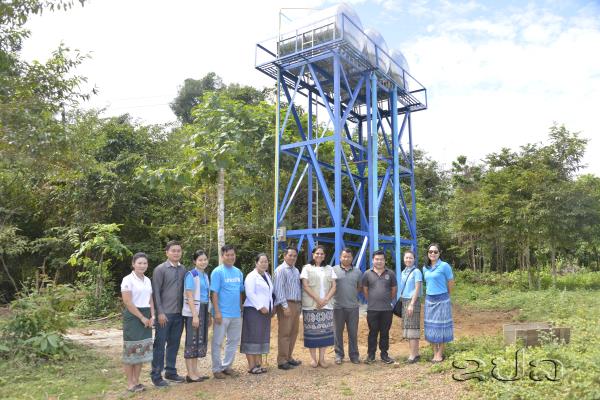
These interventions are currently being implemented in synergy with other essential UNICEF-supported sectoral assistance, including health and nutrition and child protection, which will help maximize the effectiveness of the overall interventions.
KPL